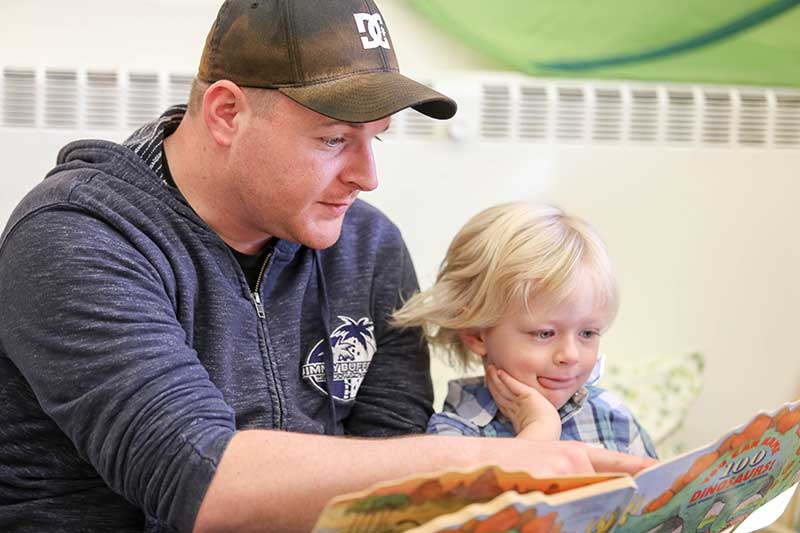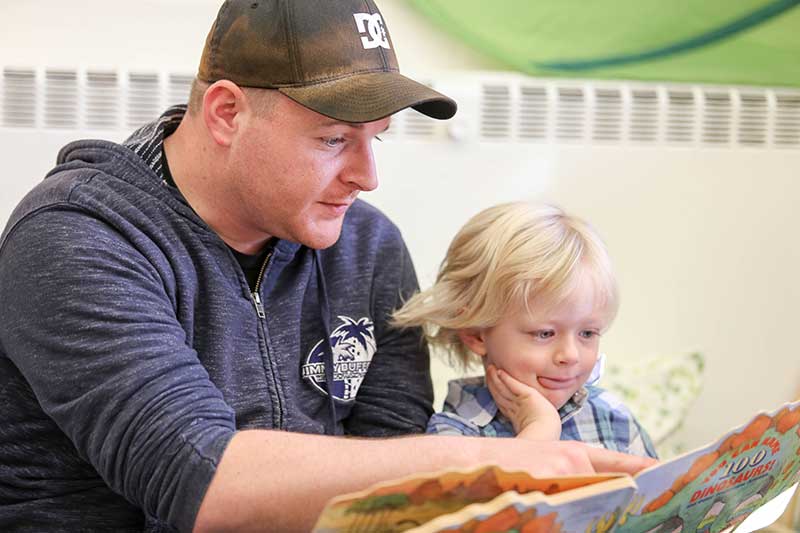Preschool Parental Support Can Support Growth and Connection

Preschool Parental Support
In my last post, I wrote about the importance of parent-teacher communication. As I look forward to our upcoming parent-teacher conferences, my mind turns to the question “What does preschool parental support look like and what can be done at home to support the child?” This is a frequent question for parents at our Moorestown preschool, and, when carefully considered, one which has the potential to support growth and connection in our preschool students.
Read with your Preschool Child
I know this sounds cliché, but reading with your child is one of the most important things you can do at home in terms of preschool parental support. Reading encourages imagination, a love of books and learning, a growing vocabulary, openness to new ideas, and a bond between you and your child. This is especially important during the ages of early childhood, when children are engaged with new and exciting language each day. This resource from the National Association for the Education of Young Children gives more information.
I think that it is important to read interesting books to young children. Stories which are well-crafted and age appropriate engage both the child and the adult at a deeper level. Don’t underestimate the capacity of your young child to appreciate good writing and complex vocabulary. After all, who doesn’t love a good story?
Go on Adventures
You and your child have wonderful adventures. There is no substitute for time spent together, and of shared experiences. You, as a parent, know what drives your child, what she or he is passionate about. As a teacher, it can be helpful to know about those passions and experiences, and we can use this information to connect with our students. When parents and teachers are communicating together, we can really understand the child and appreciate the child’s learning.
Participate in the Learning
Sometimes, especially as children approach Kindergarten and elementary school, it can be helpful to directly support the learning that is happening in the classroom at home. I write this section with a little hesitation, as I do not want to suggest that parents need to teach things that are not being taught at school. It is also important to remember that every preschool student is learning in different ways and at a different pace, and that we need to celebrate the whole child and his/her intelligence.
By “participate in the learning,” I mean that preschool parental support can be viewed as understanding the important things that the children are learning and finding ways to enrich the experience. For example, take a child who has been writing using invented code (scribbles) at school. If you are planning to go to the store, perhaps she/he would like to write a grocery list just like yours. This is an opportunity for the child to use writing to communicate, and to support the skills that they are using in school. Whether or not they use conventional letters in this example, the act of writing supports learning as well as the connection that you and your child have.
I encourage parents to talk to their child’s teachers about what and how their children are learning, and how preschool parental support can look like at home. The teacher and the parent can agree on a strategy of support. Without that communication, parents and teachers could potentially use different strategies, thus confusing the child instead of supporting her/him. I always try to remember that the home/school partnership between parents and teachers has great potential when everyone is in dialogue about shared goals for our children.
Stay tuned next week for some more concepts and strategies about early childhood education from our Moorestown Preschool program.
Beginnings at MFS is the Moorestown Friends School Early Childhood Program (Preschool, Prekindergarten, and Kindergarten). The Beginnings Blog is intended as a helpful tool for parents and guardians of young children, examining important ways in which children find meaning, in their lives and in their education.
Author Garrett McVaugh is the Beginnings at MFS Half-Day Preschool Teacher. Along with his Teaching Assistant Pauline Williams, he guides some of the youngest MFS students through their first year of school. A graduate of Haverford College, Garrett has been an early childhood educator for over a decade. Prior to MFS, he was a teacher at Preschool of the Arts in Madison, WI. Prior to living in Wisconsin, Garrett spent eight years teaching at St. John’s Episcopal Preschool in Washington, DC.
Schedule a Visit with Us
Learn more by a visit in person and meet with one of our excellent Early Childhood Program teachers.

